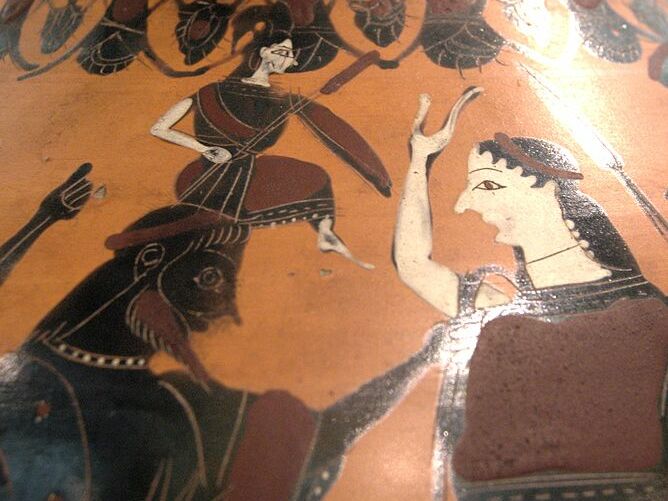HUMS 304, Women in Greek Political Thought

Course Description:
In the classical polis, women were silent and absent, confined to the household and excluded from political life. Yet women remain loud and present in Greek political thought. What are we to make of Euripides’ Medea, for example, who screams that she would stand in the first line of battle three times rather than give birth once? The incorporation of women into Greek political thought raises enduring questions—about hierarchy, rule, and justice; courage, war, and mourning; citizenship, friendship, marriage, and motherhood; the definition of the demos and the threat of a “barbarian other”; and the emotions, the virtues, and the well-ordered soul. To address these questions, we read texts (or selections from texts) by Thucydides, Aristophanes, Sophocles, Euripides, Plato, Wole Soyinka, and Arlene Saxonhouse.
Led By:
 |
Professor Daniel SchillingerDaniel Schillinger is Postdoctoral Associate and Lecturer in the Humanities Program at Yale, where he teaches Historical and Political Thought in Directed Studies. He is also a Whitney Humanities Center Fellow. His research focuses on Greek and early modern political thought, and it has appeared or is forthcoming in journals such as Political Research Quarterly, History of Political Thought, Political Theory, Polis, and The Review of Metaphysics. In his book manuscript, Schillinger examines the political significance of luck. Whereas many contemporary political theorists argue that democratic societies should seek to neutralize the effects of luck on the lives of citizens, he doubts that luck exists “out there” as something to be neutralized. Returning to Thucydides, Euripides, and Aristotle, Schillinger argues that luck is a psychological phenomenon, which remains politically significant insofar as perceptions of good or bad luck elicit intense emotions and corrupt judgment. At the same time, he finds in Greek political thought lasting reflections on virtuous political agency and unjust domination that can help us to explain how citizens confront, or are overwhelmed by, disaster. |